These reflections are a result of more than 40 years of ministry as a Roman Catholic priest. Most of these years I spent in the Diocese of Charlotte which covers Western North Carolina. Now I am retired, and live in Medellín, Colombia where I continue to serve as a priest in the Archdiocese of Medellín.
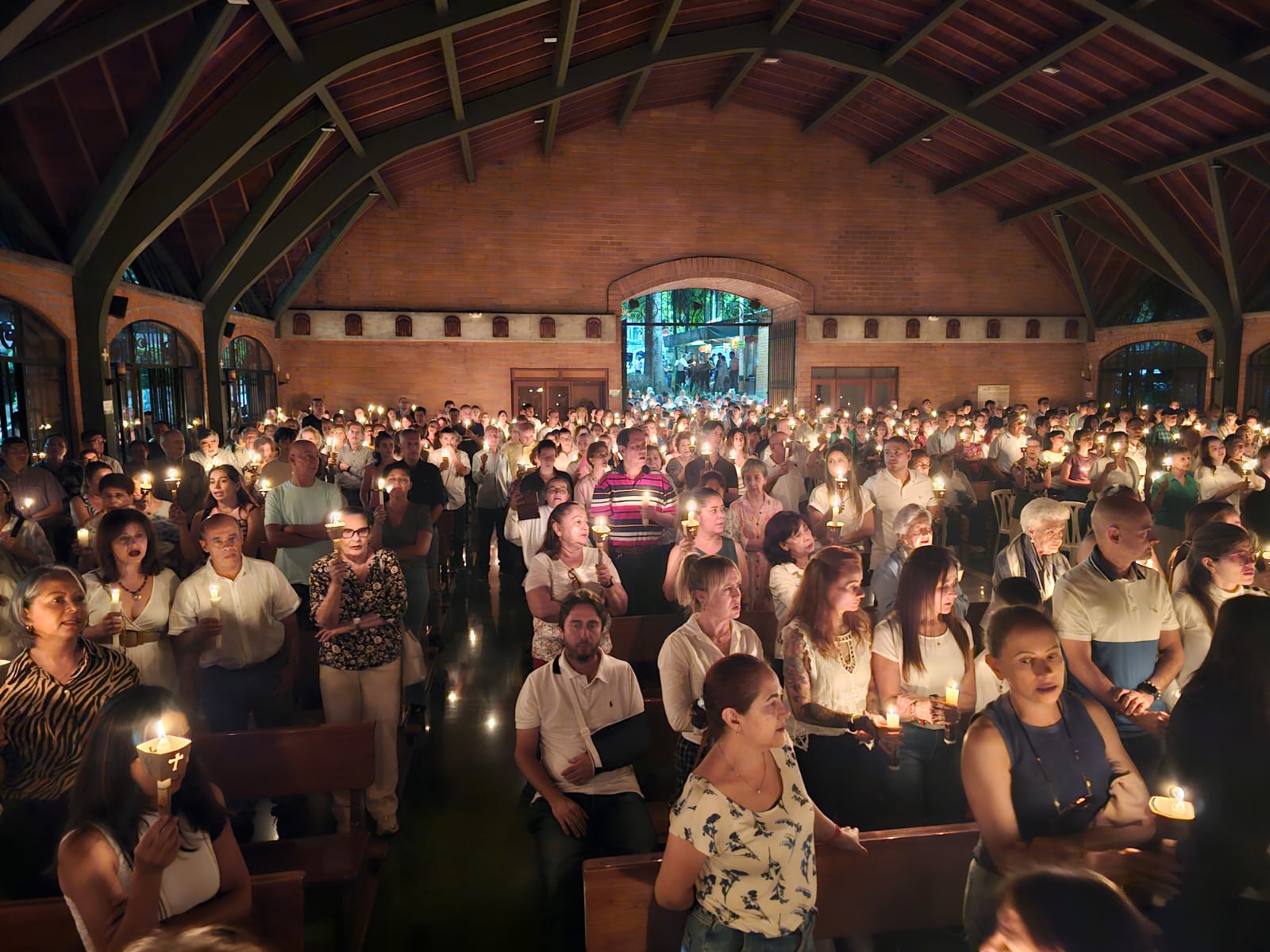
And he said to them, "Thus it is written that the Christ would suffer and rise from the dead on the third day and that repentance, for the forgiveness of sins, would be preached in his name to all the nations, beginning from Jerusalem. You are witnesses of these things." (Lk 24:35-48)
https://bible.usccb.org/bible/readings/042425.cfm
Luke’s account of the appearance of the Risen Lord to the disciples emphasizes the physicality of the experience. The Lord himself reminds us that we are witnesses of what God has done. We give thanks to God for the beautiful witness of Pope Francis. May he dance with the angels!
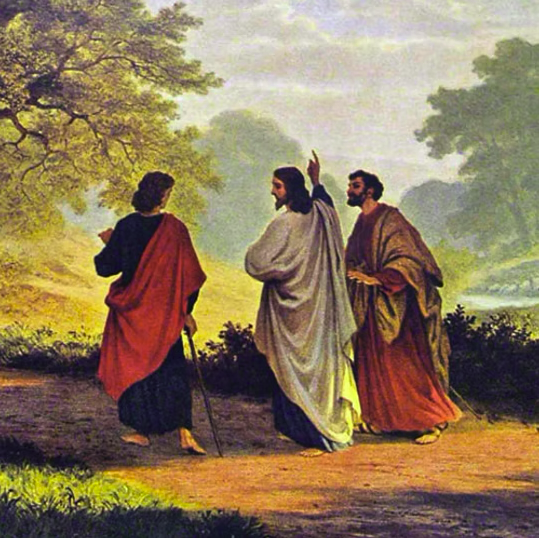
So they set out at once and returned to Jerusalem where they found gathered together the Eleven and those with them who were saying, “The Lord has truly been raised and has appeared to Simon!” Then the two recounted what had taken place on the way and how he was made known to them in the breaking of the bread. (Lk 24:13-35)
https://bible.usccb.org/bible/readings/042325.cfm
The Encounter of the Risen Lord with the Two Disciples on the Road to Emmaus is how we experience the Risen Lord today—our hearts are burning within us when he speaks to us on the Way, and then we recognize him in the Breaking of the Bread. Eternal rest grant to Pope Francis, O Lord, and let perpetual light shine upon him. May he rest in peace!
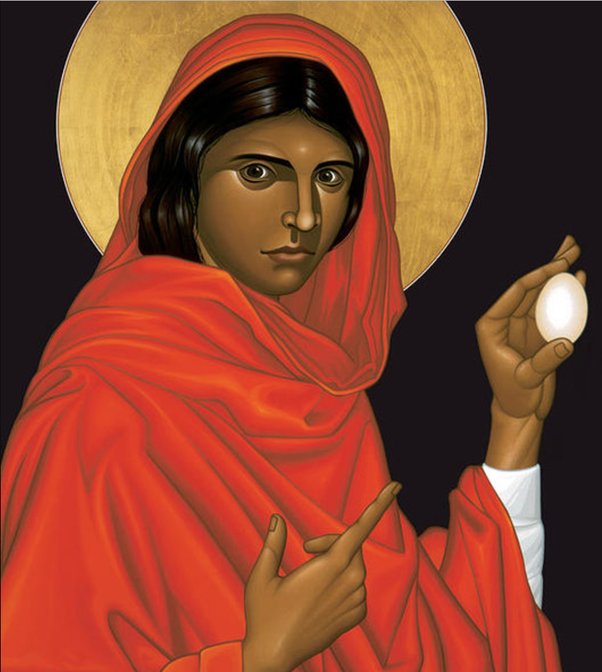
Jesus said to Mary Magdalene, “Stop holding on to me, for I have not yet ascended to the Father. But go to my brothers and tell them, ‘I am going to my Father and your Father, to my God and your God.’” Mary went and announced to the disciples, “I have seen the Lord,” and then reported what he had told her. (Jn 20:11-18)
https://bible.usccb.org/bible/readings/042225.cfm
Mary Magdalene is extremely important to the gospel story. She is the “Apostle to the Apostles.” Her words to the disciples, “I have seen the Lord” are the same words that Saint Paul will use much later to describe his experience of the Risen Lord (1 Cor 9:1). We pray for the repose of the soul of Pope Francis. May his soul and the souls of all the faithful departed through the mercy of God rest in peace!
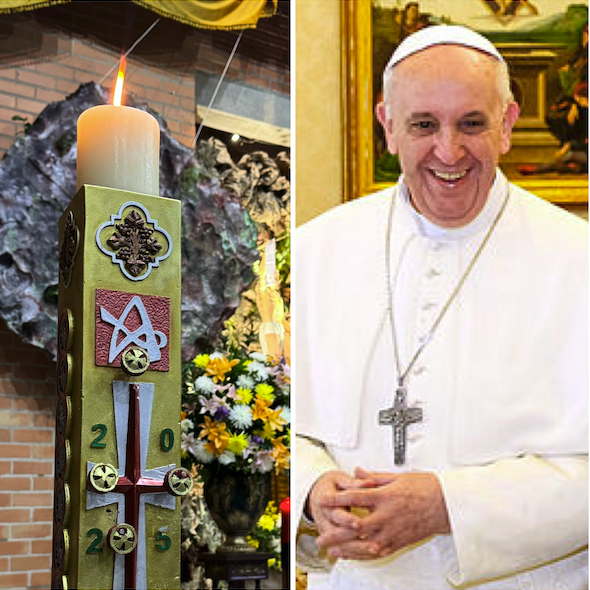
Mary Magdalene and the other Mary went away quickly from the tomb, fearful yet overjoyed, and ran to announce the news to his disciples. And behold, Jesus met them on their way and greeted them. They approached, embraced his feet, and did him homage. Then Jesus said to them, “Do not be afraid.” (Mt 28:8-15)
https://bible.usccb.org/bible/readings/042125.cfm
Fearful and overjoyed describes disciples in every age, but the Risen Lord tells us: “Do not be afraid.” Today with great devotion we remember +Pope Francis (1936-2025) who died this morning. “Well done good and faithful servant!” (Mt 25:23). May he rest in peace!
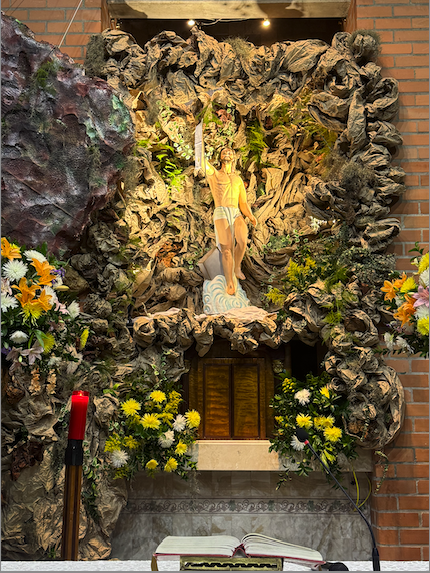
Two men in dazzling garments appeared to the women. They were terrified and bowed their faces to the ground. They said to them, "Why do you seek the living one among the dead? He is not here, but he has been raised. Remember what he said to you while he was still in Galilee, that the Son of Man must be handed over to sinners and be crucified, and rise on the third day." And they remembered his words. (Lk 24:1-12)
https://bible.usccb.org/bible/readings/041925.cfm
Sometimes in our fear and trembling we need a reminder that the Lord is in control. The faithful women at the Tomb received such a reminder and remembered his words. We too hear the message of the faithful women, we remember his words, and we continue to proclaim the Good News: Christ is risen. He is risen indeed! Alleluia, alleluia!!



